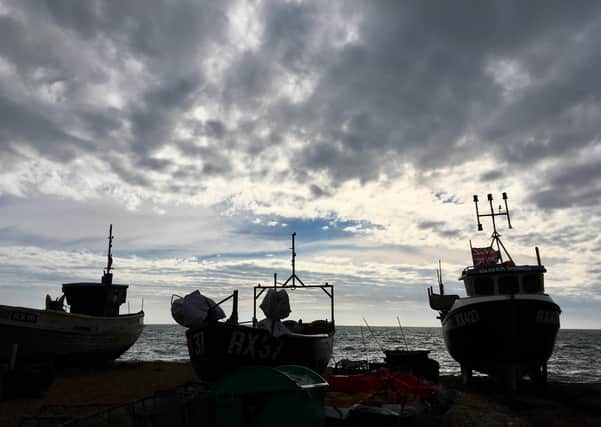Has fishing really broken free from the EU net?


On Christmas Eve, our local MP, Sally Ann Hart welcomed the new trade deal with the EU and stated that we have struck a good deal on fisheries. In particular, “that at the end of the five year transition period, we will have full control of our waters and that the 0-12 nautical miles of fishing waters off our coastline will no longer permit foreign vessels access. These 12 miles off our coastline are for UK fishing vessels only, which our local under-10 metre fishing boats make particular use of.”
Hopefully in the last few days, she will have had more time to read the detailed complexities of the deal and will realize that the above is not the case, as many leaders of the fishing industry have since pointed out. Barrie Deas, chief executive of the National Federation of Fisherman’s Organisations has said that there is a growing feeling of disappointment in the industry: “There have been some marginal changes on the quota shares but we’re tied back into an arrangement that gives access to the EU fleet to our waters up to the six mile limit. We thought an exclusive 12-mile limit was an absolute red line for the UK. That hasn’t held.”
Advertisement
Hide AdAdvertisement
Hide AdFurthermore, according to fine print of the deal, after the transition period ends in 2026, if one side refuses or reduces access to their waters “compensatory measures can be imposed commensurate to the economic and societal impact of the change.” These measures can include tariffs and tit for tat closures. In other words, we could close our waters to the EU fleet but would pay a heavy price for doing so in tariffs on fish exports to the EU.
The incremental quota increases to a limit of 25% by 2026 will help our fisherman. However, the increases vary by species. For example, we have a small increase for cod and haddock (good news for our chippies!) but a bigger one for coley and hake which is mostly exported to France and Spain. If you talk to our local fishermen, they will tell you that between 70-80% of their overall catch goes straight across to the markets and restaurants on the continent, who want quality fresh (not frozen) fish. Up to now this has been possible through paper-free, low regulation overnight sales. But now that we have left the European Single Market, they are now faced with more red tape and bureaucracy and cumbersome health checks.
It is hard not to conclude that our fishing industry will continue to be inextricably intertwined with Europe for the forseeable future.
A message from the Editor, Gary Shipton:
In order for us to continue to provide high quality and trusted local news, I am asking you to please purchase a copy of our newspapers.
Advertisement
Hide AdAdvertisement
Hide AdWith the coronavirus lockdown having a major impact on many of our local valued advertisers - and consequently the advertising that we receive - we are more reliant than ever on you helping us to provide you with news and information by buying a copy of our newspapers.
Our journalists are highly trained and our content is independently regulated by IPSO to some of the most rigorous standards in the world. But being your eyes and ears comes at a price. So we need your support more than ever to buy our newspapers during this crisis.
Stay safe, and best wishes.